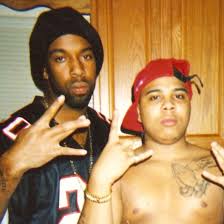Novel-writer Ward Sanford Reimagines First-Century Judea and the Legacy of Josephus
In an era of societal flux and swirling violence, novelist Ward Sanford offers a fresh vantage point: looking back to first-century Judea to inform present-day storytelling. His latest historical fiction series turns a spotlight on the figure of Flavius Josephus — the Jewish historian-turned-Roman collaborator whose legacy remains controversial.
A trained scientist, Sanford says his research mindset has proven invaluable. “I recognised this right up front,” he says, referring to the rigour required to reconstruct ancient society, logistics, culture and conflict. With more than three decades of writing behind him, he describes his mission as making historical detail accessible to readers, while not sacrificing depth or complexity.
Sanford also draws on decades of experience in Christian counselling, which he says shapes the emotional lives of his characters: their trauma, their hope, their struggle with identity in turbulent times. Josephus, so often dismissed as a traitor, becomes in Sanford’s hands a “vital witness” — a man caught between his Jewish roots and Roman power, between survival and compromise.
“What we see in first-century Judea,” Sanford notes, “is not so different from what we see today: violence, shifting allegiances, fragile communities trying to make sense of meaning in the midst of turmoil.” He links this to our modern Western society’s struggles: the dislocation of identity, faith under pressure, the challenge of telling truth in story.
View this post on Instagram
When asked how one begins writing historical fiction, Sanford emphasises the twin tasks of research and character. “You have to get the bones of history right,” he says, “but then you breathe in the life of the people who lived it.” His collaboration with a professional writer helps him weave fictional characters into real events, so that readers can engage emotionally and intellectually.
In the context of this week’s fascination with the interstellar visitor 3I/ATLAS — the third known interstellar object passing through our solar system — we might draw a parallel: just as readers look to ancient history for perspective, astronomers look outward to foreign objects for clues about origins and identity. Both journeys invite us to stretch our vantage point, to consider the “other,” and to ask what it means to belong.
For aspiring writers, Sanford leaves this advice: “Know your context, care about your characters, and understand that history isn’t defeated — it echoes.” As his series continues, he hopes that more readers will step into the world of first-century Judea not merely for escapism, but to deepen their understanding of faith, society and the power of story.
Takeaways:
-
Sanford’s 35-year novelist career is rooted in scientific research and counselling practice.
-
He uses the historical figure Josephus as a lens for exploring betrayal, witness and survival.
-
His novels aim for historical accuracy while remaining accessible and engaging.
-
He sees strong parallels between ancient society and modern culture.
-
Readers are invited to explore the series via his website and blogs.
MORE ON DR. WARD SANFORD AND HIS MISSION
Dr. Ward Sanford is the author of Cry for Jerusalem, a gripping four-part historical novel series that brings to life the drama and times of Flavius Josephus—the controversial first-century Jewish historian whose writings, especially The Jewish Wars, offer the most detailed account of the destruction of Jerusalem and the Second Temple in AD 70. The storyline includes endearing male and female main characters and multiple interactions with early Christians.
Through meticulously researched storytelling, Sanford brings Josephus to life as a complex figure—hailed by some as a traitor, and by others as an indispensable eyewitness to and recorder of one of the most pivotal events in biblical and Jewish history. The Cry for Jerusalem series explores the spiritual tensions, political chaos, and prophetic significance of a nation on the brink, as seen through Josephus’s eyes. Sanford’s narrative invites Christian readers to engage with a deeper understanding of how this historical moment fulfilled prophecy and reshaped the early Church. Ward has also written dozens of highly popular blogs concerning the subject matter of first century Judea and related Christian apologetics.
Share this content:














Post Comment